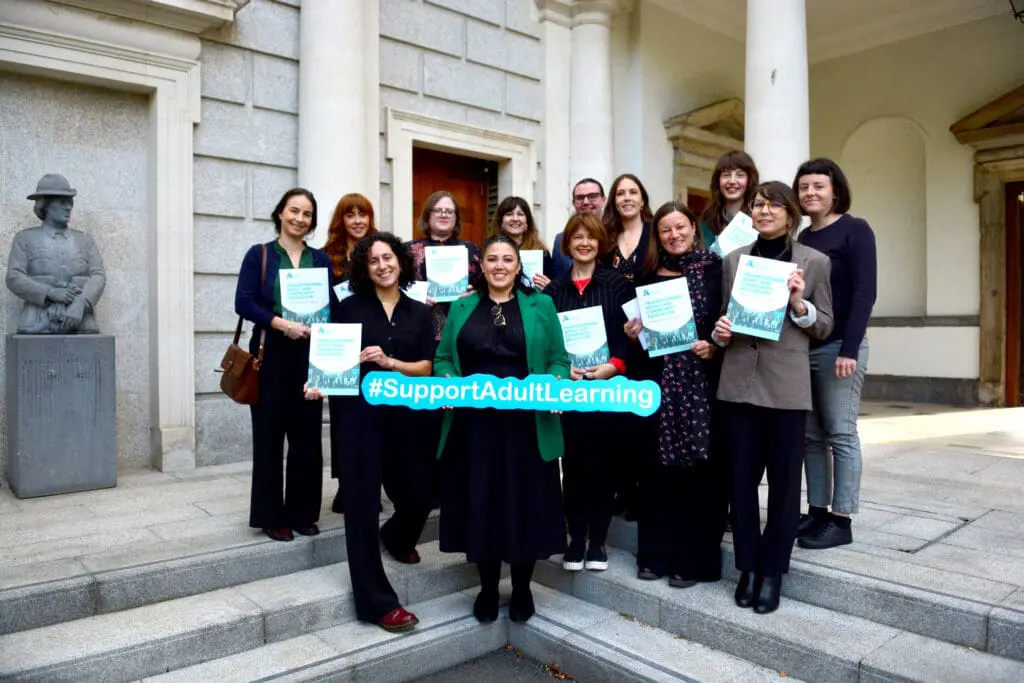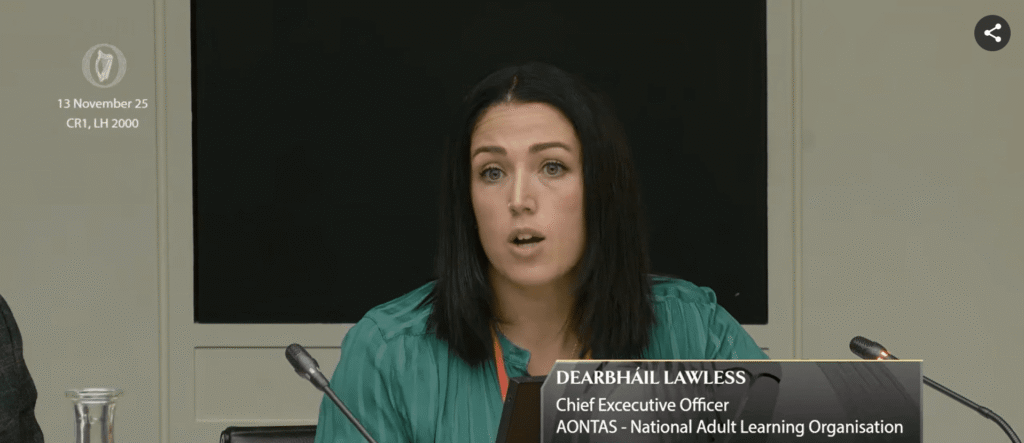IHREC states that public bodies “must assess, address, and report on progress in relation to equality and human rights in their strategic plan and annual reports in a manner that is accessible to the public.”
As a team, we at AONTAS are committed to excellence in governance, and our hard-working staff are highly skilled, well-informed, and passionate about social justice.
Because we are in receipt of public funding through SOLAS, and the Department of Further and Higher Education, Research, Innovation, and Science, we have obligations relating to Public Sector Duty.
The realisation of Public Sector Duty matters because in order for education to be truly equal in Ireland, we must take a rights-based approach and ensure everyone’s human rights are respected.
There is no place for discrimination in the Irish education system, either for staff or learners.
We have set up a new internal Public Sector Duty Working Group, which meets regularly to discuss this process and what we are doing to ensure equality both internally in our organisation, and for the people we work with and advocate for.
What’s involved in realising Public Sector Duty?
There are three stages or actions that public bodies must take.
- Assess – set out in our strategic plan an assessment of the human rights and equality issues we believe to be relevant to our activities and purpose
- Address – set out in our strategic plan the policies, plans, and actions in place or proposed to be put in place to address those issues
- Report – report on developments and achievements in our annual report.
Our current Strategic Plan – “Leading Collective Action for Social Change” – will finish in 2026. Soon, we will be developing a new Strategic Plan. And we are committed to the following actions to implement Public Sector Duty in our work. In this new plan, we will:
- Build the capacity of the organisation and our team
- Host an Equality, Diversity, and Inclusion (EDI) internal working group
- Set a policy framework of standards that will inform all organisation planning and policy
- Create a values framework based on our principles and values
- Host regular “Town-Hall” meetings with staff and a confidential survey annually
- Support our learner representatives and member representatives on the Board to challenge and guide the organisation from an equality perspective
- Integrate values in all our work practices and processes.
Our annual reports will now contain updates on Public Sector Duty.
In addition, we made Public Sector Duty a key ask in our Manifesto, demonstrating to our stakeholders and policymakers that we are aware of and stand behind the essential role of Public Sector Duty in ensuring equality in Irish society. In our Manifesto – “Transforming Adult and Community Education” – one of the five transformative changes for adult learning suggested to the Government is to ensure meaningful Public Sector Duty processes in adult and community education.
We also advocate for action on Public Sector Duty in our policy submissions and publications with recommendations for policy change to key stakeholders such as SOLAS and the Department of Further and Higher Education, Research, Innovation, and Science.
We will continue to update our members and stakeholders on our progress and share information on the realisation of Public Sector Duty.






